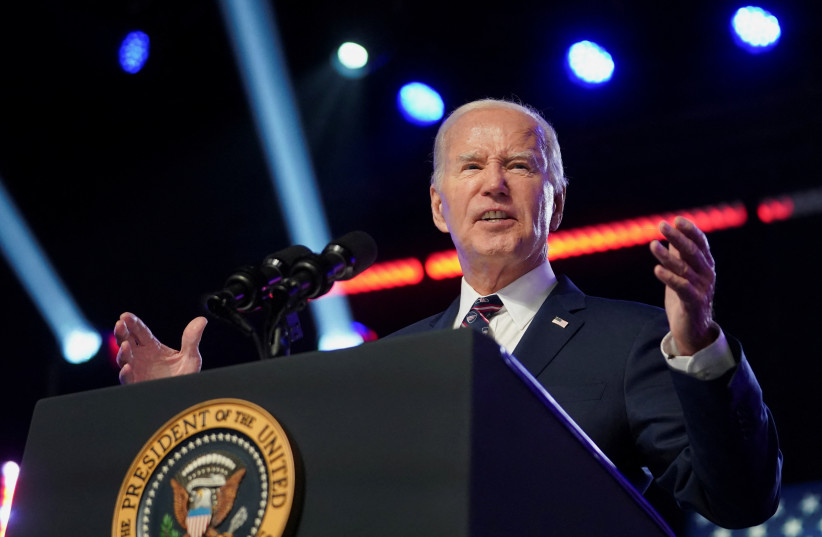Approximately 47% of younger Jewish voters, aged between 18-35, feel that President Joe Biden is overly supportive of Israel, according to the latest November 2023 National Survey of Jewish Voters, conducted by the Jewish Electorate Institute with GBAO Strategies. This contrasts sharply with the generally favorable view of the older Jewish electorate towards the President's handling of the war between Israel and Hamas.
According to the survey, only 18% of American Jews between the ages of 36 to 65 thought that Biden was "overly supportive." The religious stream with the highest support for Israel is the Conservative movement, with 89% approval for Biden's support for Israel, as opposed to 81% of the Orthodox and 79% of Reform Jews.
The survey, designed to understand the perspectives of the US Jewish electorate, has unveiled a significant generational divide in political opinions among American Jews. While a broad majority of respondents across the political spectrum approved of President Biden's approach to the conflict, the younger demographic showed notable divergence.
Younger voters against US blocking ceasefire at the UN
These younger voters were less supportive of the United States vetoing the UN ceasefire resolution and expressed a stronger preference for the President's call for a humanitarian pause in the fighting.
Dr. Arielle Levites, Managing Director at CASJE, highlighted the importance of these findings in a newsletter: "These findings help us continue to refine and deepen our understanding about how American Jews are responding to the events of October 7 and the war between Israel and Hamas."

Another key finding of the survey is the overwhelming concern about antisemitism among the Jewish electorate, with 96% viewing it as a serious problem in the United States. This concern is especially pronounced on college campuses, where 91% perceive antisemitism to be a significant issue.
Additionally, the survey revealed that while antisemitism remains a major concern, younger Jewish adults are more worried about racism and Islamophobia. Among these respondents, 74% consider racism and 66% consider Islamophobia as very serious problems in the US, slightly overshadowing their concerns about antisemitism at 65%.
Despite the clear support for Israel, the study also found that a vast majority (91%) believe one can be “pro-Israel” while being critical of Israeli government policies. This is an essential insight into the complex relationship that American Jews have with Israel, combining support with a willingness to critique.
The survey's methodology involved identifying registered Jewish voters through a combination of distinctive Jewish names and residence in areas with high Jewish populations. A total of 800 individuals self-identified as Jewish completed the web survey. However, the study faced limitations, including a lack of detailed information about the sample's geographic distribution and potential underrepresentation of certain segments of the American Jewish population.
